-
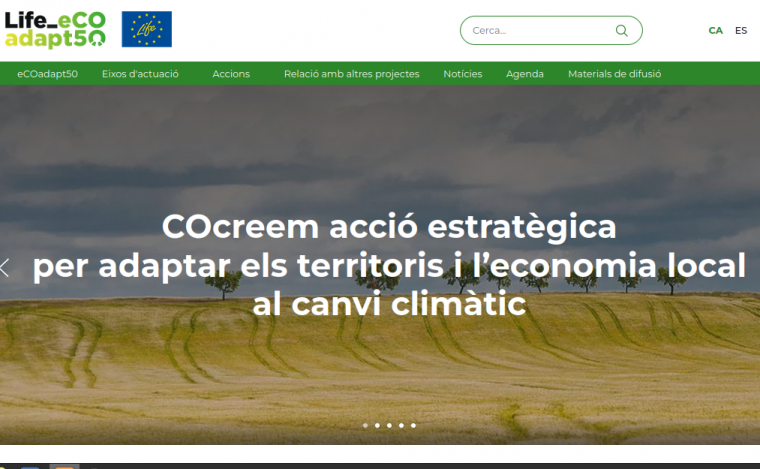
Life eCOadapt50
Call: LIFE
Duration: 2023-2030
Life eCOadapt50 is an ambitious European project aimed at adapting to climate change, led by the Climate Action and Energy Transition Area of Barcelona Provincial Council, with the participation of 25 public and private partners.
The project is strategically focused on co-creating actions to adapt territories and local economies to climate change in 19 areas of Catalonia.
It involves local government and social and economic agents in these participating areas and has a budget of 18.6 million euros.
The project plans to implement more than 76 actions relating to four economic activities (agriculture, forestry, fishing and tourism) that are particularly vulnerable to the impacts of climate change in the participating districts, which together represent 60% of the total area of Catalonia (nearly 19,400 km²) and more than 10% of Catalonia's population (more than 900,000 inhabitants).
The main objective of Life eCOadapt50 is to encourage a transformation in these territories and the industries that operate there, making them less susceptible to the adverse effects of climate change.
-
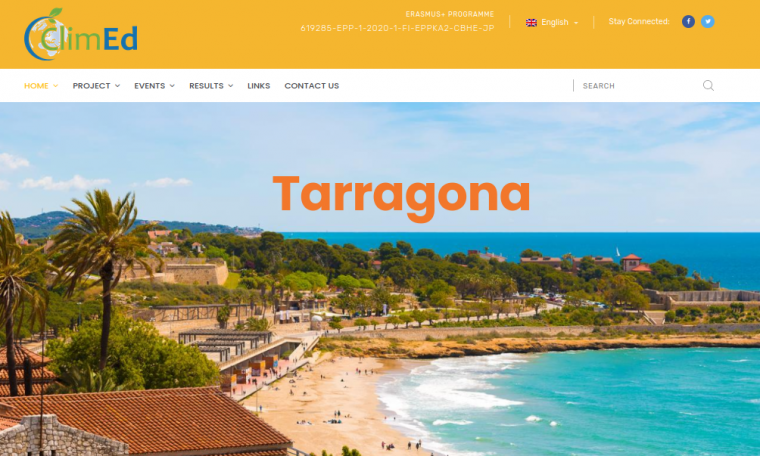
ClimEd
Call: Erasmus + Capacity Building in High Education
619285-EPP-1-2020-1-FI-EPPKA2-CBHE-JP
Duration: 15.11.2020 - 14.05.2025
The aim of the project is to promote the development of competence-based curricula dedicated to the continuous and comprehensive training of specialists in the field of climate services in Ukraine. This initiative focuses on professional education and fosters additional educational opportunities regarding climate change for various stakeholders, including decision-makers, experts in climate-dependent economic sectors and the public.
With the potential to significantly impact the professional landscape, the ClimEd project has the following objectives:
- To develop concepts for competence-based professional education explicitly adapted to climate services.
- To develop teaching and methodological materials. This includes the creation of distance learning and face-to-face courses.
- To create learning courses adapted to both decision-makers and professionals working in climate-dependent sectors.
- To develop open online courses (MOOCs) on climate change and adaptation strategies for the general population.
-
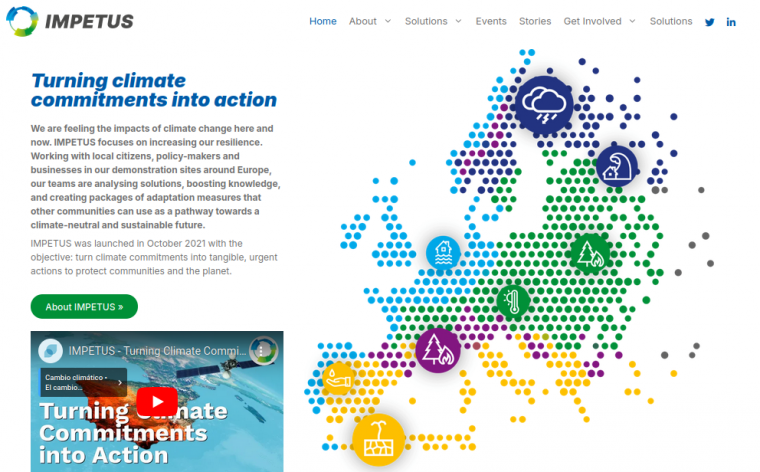
Impetus
Call: Horizon 2020 research and innovation program
Grant agreement no. 101037084 funded in the EU Green Deal Horizon 2020 call
The increase in intense weather conditions worldwide poses a serious threat to people's health, livelihoods and ecosystems. This threat requires strong and immediate responses and the implementation of solutions aligned with the European Union's goal of becoming the world's first climate-neutral continent by 2050. The IMPETUS project, launched in October 2021, incorporates these responses with the aim of turning climate commitments into urgent actions and measures to safeguard communities and the environment.
The main role of these RKBs (Resilience Knowledge Boosters) is to facilitate a flow of knowledge and best practices between regions, thus improving climate resilience. This collaborative network is crucial for refining risk assessment tools, improving governance, making informed economic decisions and ensuring the cost-effectiveness of adaptation strategies. Through these concerted efforts, IMPETUS is paving the way to a sustainable and climate-neutral economy by developing local, regional and even cross-border climate adaptation strategies.
-
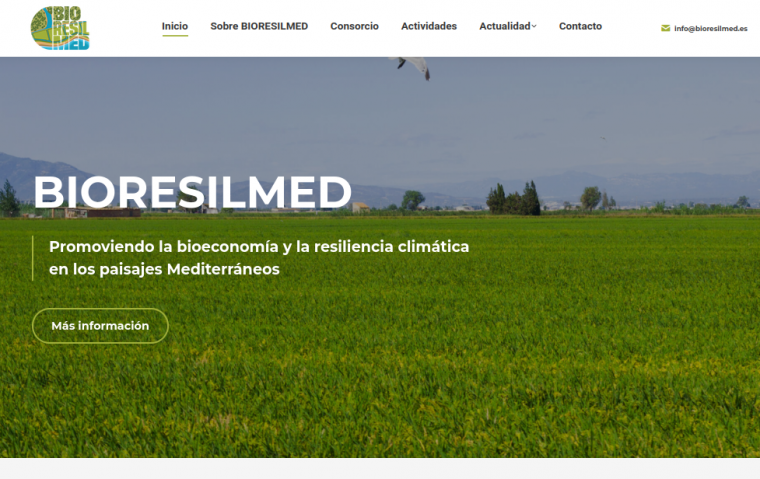
BioResilMed
Call: Recovery, Transformation and Resilience Plan (PRTR) - Next generation
Duration: 2023-2025
The BIORESILMED project is dedicated to advancing innovative practices and solutions that strengthen the economy, improve biodiversity and increase the climate resilience of Spanish Mediterranean landscapes, including coastal wetlands and inland agricultural areas.
This initiative aims to develop an alternative economic model for these Mediterranean rural territories, thus replicating the project's success in other landscapes. The project covers a range of activities including pilot testing, networking, capacity building, developing new business models, encouraging public participation and promoting green job opportunities.
The tools and solutions devised under BIORESILMED aim to promote the economy and improve climate resilience in these landscapes, using as models the Ebro Delta and the AlVelAl Territory, which includes parts of Granada, Almeria and Murcia. The strategy is based on applied research and innovation to restore natural capital, support organic and regenerative agriculture and enhance nature-based tourism to improve the ecological and economic health of these vital regions, which are facing depopulation and the threats posed by the climate emergency.
-
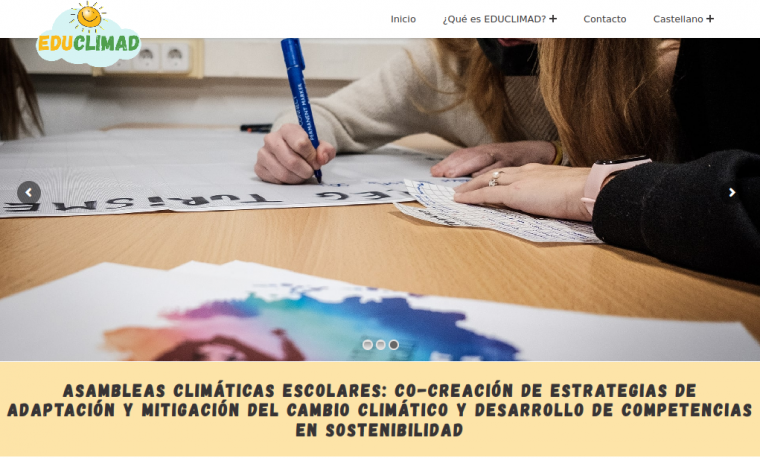
EduClimAd
School Climate Assemblies: co-creation of climate change adaptation and mitigation strategies and development of sustainability skills (EDUCLIMAD).
Research project funded by MCIN/AEI and by the European Union NextGeneration EU/ PRTR.
EDUCLIMAD is an applied research project that aims to raise awareness and involve young people in matters of sustainability, through school assemblies for the climate in 25 Primary Education schools in the Camp de Tarragona area.
By participating in innovative democratic processes students learn how to deliberate and take collaborative decisions, look for solutions to deal with climate change, and propose actions to promote sustainability at local and regional levels.
EDUCLIMAD emphasizes the strengthening of environmental awareness and the empowerment of children and youth through education. It recognizes their potential to become ambassadors and agents of change for climate action and sustainable development in their environment by sharing knowledge and experiences with their families, local communities and policy makers.
-
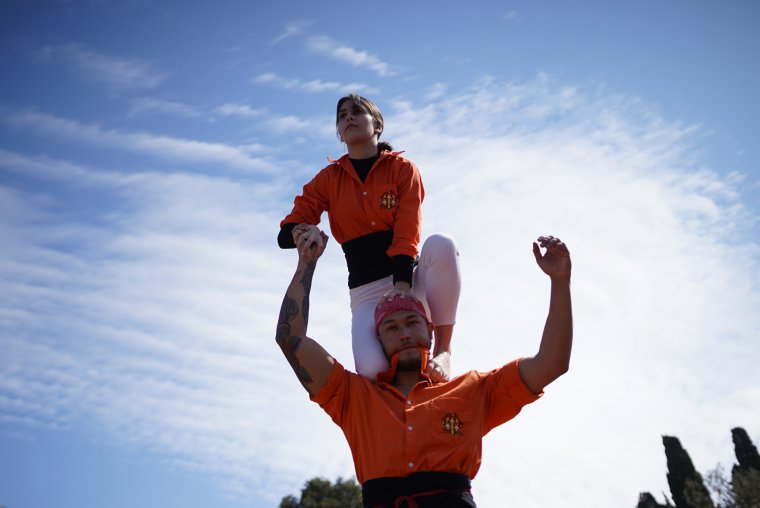
Castells
Impact of climate change on castells (human towers)
The Universitat Rovira i Virgili, through the URV Chair for the Study of Human Tower Building, has started a research project to analyse the impact of climate change on Human Towers. The study seeks to understand how climate change affects, or can affect, human tower building events and what adaptation measures could be implemented to mitigate the negative impacts.
The research places particular emphasis on assessing how climate change can affect cultural activities carried out outdoors. Human tower building events, especially those that take place during the warmest months of the year, in the middle of the day and in open spaces, are exposed to weather conditions (high temperature, humidity and insolation), which can compromise the safety of the participants and the success of the activity.
The project includes an analysis of how average temperatures have changed in relation to the main human tower building events over the last four decades. Participatory workshops with the members of different human tower groups will also identify which weather conditions have the greatest impact on the construction of human towers and will draw up proposals for adapting this tradition to new climatic conditions.
